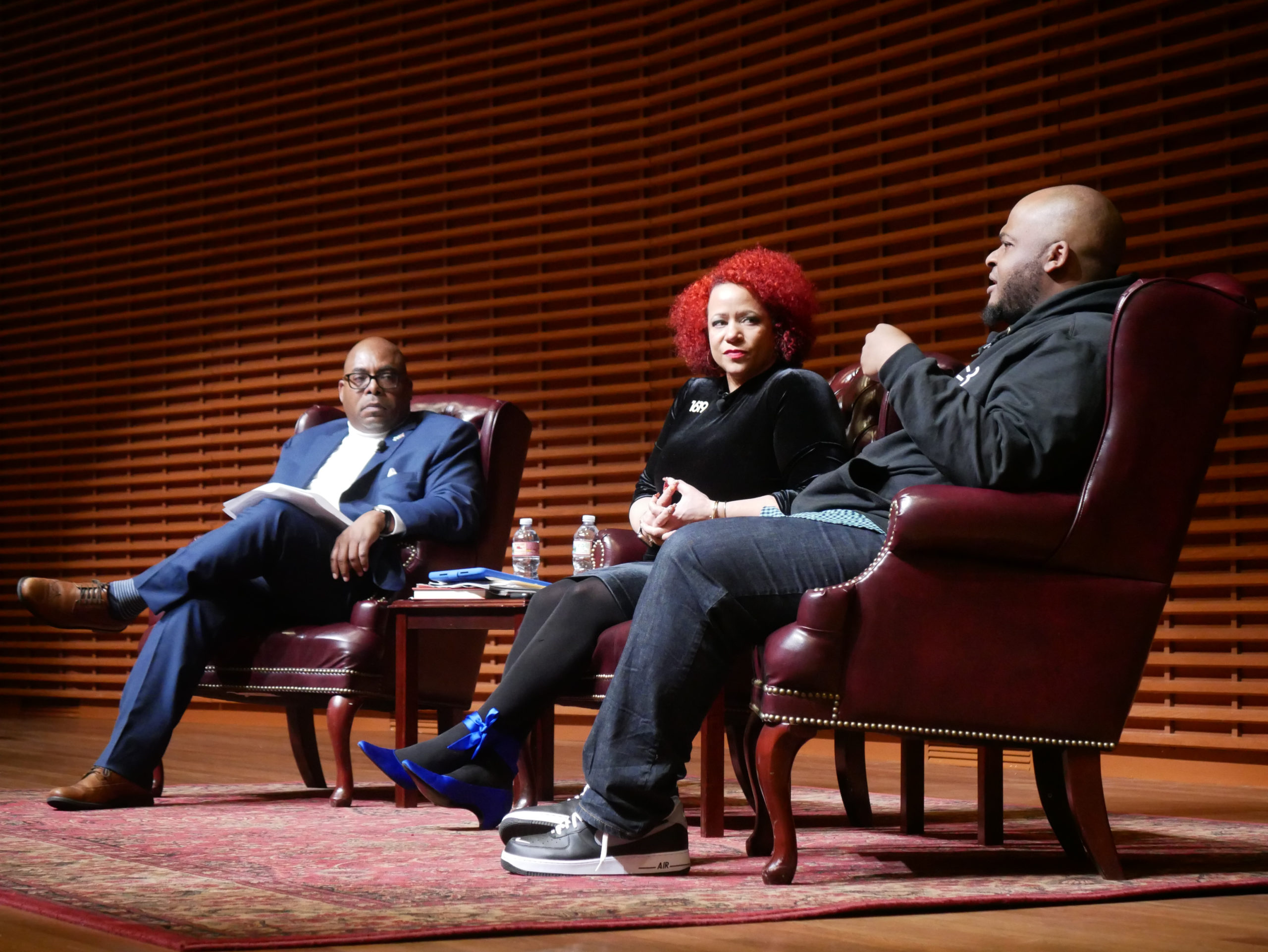Two people behind the New York Times’ “1619 Project” — which seeks to examine how slavery shaped and continues to influence the course of American history — discussed the project, the importance of diverse curriculum and allyship during Tuesday evening’s McClatchy Symposium.
The 1619 Project was published last August by The New York Times. Representing the initiative at the event were Nikole Hannah-Jones, the 1619 Project’s creator, and Kiese Laymon, a professor of English and creative writing at the University of Mississippi who contributed a short story to the project.
Although Hannah-Jones pitched the 1619 Project to The Times a year ago, she said that ideas for this project emerged when she took her first class on Black American history in high school.
“When I took that course, it was transformative for me,” she said. “I got really angry that this was the first time in my entire academic career that I had ever learned about any contributions that Black people had made.”
That’s why Hannah-Jones doesn’t take issue with critics of the 1619 Project who have accused her of rewriting history: That accusation represents the project’s actual goals, she said.
“What people don’t seem to understand is that [we] had never been taught an objective history,” she said. “Objective history does not exist.”
Alongside the themed issue of the New York Times Magazine and an accompanying podcast, the 1619 Project was also released as a free curriculum. Hannah-Jones’ goal in doing this is to “get these kids to ask questions,” and she stressed the importance of “opening the mind for a child.”
“Honestly, we can’t depend on our schools to teach our children,” Hannah-Jones said. “My daughter had her first book on slavery when she was three years old.”
Holding educational systems accountable goes beyond the K-12 curriculum, the speakers said. When event moderator Michael Bolden, the managing director of the John S. Knight Journalism Fellowships at Stanford, posed a faculty question about how they could contribute as educators to the ideas behind the 1619 Project, Hannah-Jones and Laymon raised the issue of a lack of diversity amongst faculty.
Laymon criticized the University, stating that if Stanford lacks diversity, then something must be done about the situation to ensure that students have an education that goes beyond the classroom setting.
“If Stanford is like the University of Mississippi, then if you can find millions and millions of dollars to pay an athletic coach, you can find faculty who are willing to speak beyond themselves and the audience for their students,” he said.
Diversifying faculty, Laymon argued, would be beneficial not only to students of color but also to white students.
Provost Persis Drell told The Daily she agreed with the speakers and was supportive of the 1619 Project’s goals.
“I totally agree, we don’t [have enough diversity in University faculty],” Drell said. “I think [the 1619 Project] is awesome.”
After Hannah-Jones spoke about the positive impact of the project on Black Americans, who she said felt a great sense of power after learning about the project, she addressed the takeaway for allies who were supportive of the project.
“We don’t need your feelings,” Hannah-Jones said, referring to allies. “Black people need repair, and repair has to be both financial, and it also has to be the way we are seen in the country.”
She further stated that for 400 years, black people have been treated as “a problem for a circumstance [they] did not create.”
“The project is not asking white people to feel guilty about something that they did not do, but they need to acknowledge that they are beneficiaries of an unjust system,” she said.
A previous version of this post described Nikole Hannah-Jones and Kiese Laymon as “two creators of” the 1619 Project. The article has been clarified to describe them as “two people behind” the project, since Laymon was a contributor to the project but did not create it. The Daily regrets this error.
Contact Camryn Pak at cpak23 ‘at’ stanford.edu.
